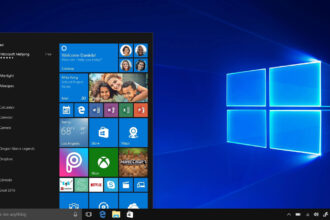In an increasingly digital world, protecting online privacy has become a top concern for many individuals and businesses. Anonymous Bitcoin hosting offers a way to enhance privacy and security by allowing users to pay for hosting services using cryptocurrency.
In this article, we will explore how anonymous Bitcoin hosting can help you safeguard your online presence and maintain a higher level of privacy.
Choose a Reliable Bitcoin Hosting Provider
If you want to know crypto news now there are lots of sites and apps where you can check it every minute.
Select a reputable hosting provider that accepts Bitcoin as a payment method. Look for providers with a track record of delivering secure and anonymous hosting services. Consider factors such as server locations, uptime guarantees, customer support, and data protection measures.
Secure Bitcoin Wallet
Obtain a secure Bitcoin wallet to store your cryptocurrency. Use a hardware wallet or an offline wallet to minimize the risk of theft or hacking. Ensure you have proper backup measures in place to prevent the loss of your Bitcoin funds.
Maintain Anonymity
When signing up for Bitcoin hosting, prioritize providers that respect and prioritize anonymity. Look for hosting companies that do not require extensive personal information during the registration process. Protect your identity by using pseudonyms and separate email addresses when setting up your hosting account.
Use a VPN
Employ a Virtual Private Network (VPN) to further enhance your online privacy. A VPN encrypts your internet traffic and masks your IP address, making it difficult for third parties to track your online activities. Connect to a VPN server before accessing your Bitcoin hosting account to add an extra layer of privacy.
Enable Two-Factor Authentication (2FA)
Activate two-factor authentication for your Bitcoin hosting account. This adds an extra layer of security by requiring a second verification step, such as a code sent to your mobile device, when logging in. 2FA helps prevent unauthorized access to your hosting account and protects your Bitcoin funds.
Regularly Update Software
Keep your hosting platform and any associated software up to date. Regularly install updates and security patches to protect against vulnerabilities that could compromise your online privacy. This includes your content management system, plugins, and other web applications you use.
Secure File Transfers
Ensure that your Bitcoin hosting provider offers secure file transfer protocols, such as SFTP (Secure File Transfer Protocol) or SSH (Secure Shell). These protocols encrypt data during file transfers, safeguarding sensitive information from interception or unauthorized access.
Strong Passwords and Encryption
Create strong and unique passwords for your Bitcoin hosting account. Avoid using common passwords or easily guessable information. Additionally, consider encrypting sensitive files or data stored on your hosting account to add an extra layer of protection.
Anonymous Bitcoin hosting provides an effective means to enhance online privacy and security. By utilizing a reliable Bitcoin hosting provider, securing your Bitcoin wallet, maintaining anonymity, using a VPN, enabling 2FA, updating software, securing file transfers, and employing strong passwords and encryption, you can significantly strengthen your online privacy. Prioritizing these measures will help safeguard your personal and business data, giving you greater peace of mind in an increasingly digital world.
In today’s digital age, maintaining online privacy is of paramount importance. Bitcoin, a decentralized cryptocurrency, offers certain advantages when it comes to protecting personal information.
Pseudonymity
Bitcoin transactions are pseudonymous, meaning they are associated with unique addresses rather than personal identities. By using different Bitcoin addresses for each transaction, you can avoid linking your real-world identity to your online activities. This helps protect your privacy and makes it more challenging for third parties to track your transactions.
Wallet Security
To safeguard your Bitcoin holdings and personal information, it’s crucial to prioritize wallet security. Choose a reputable Bitcoin wallet that offers robust security features, such as encryption and two-factor authentication (2FA). Keep your wallet software up to date and regularly back up your wallet data to prevent the loss of funds.
Protecting Transaction Privacy
While Bitcoin transactions are pseudonymous, they are recorded on a public blockchain, which can potentially reveal transaction patterns and addresses. To enhance privacy, consider using privacy-focused Bitcoin wallets or mixing services that obfuscate the transaction trail by mixing your coins with others. This helps make it more difficult to trace your transactions back to your identity.
Be Mindful of Public Addresses
Be cautious when sharing Bitcoin addresses publicly. Avoid using the same Bitcoin address for multiple transactions, as it can make it easier to link your activities together. If you need to share a Bitcoin address, consider using a new address for each transaction to maintain separation and reduce the ability to track your transactions.









